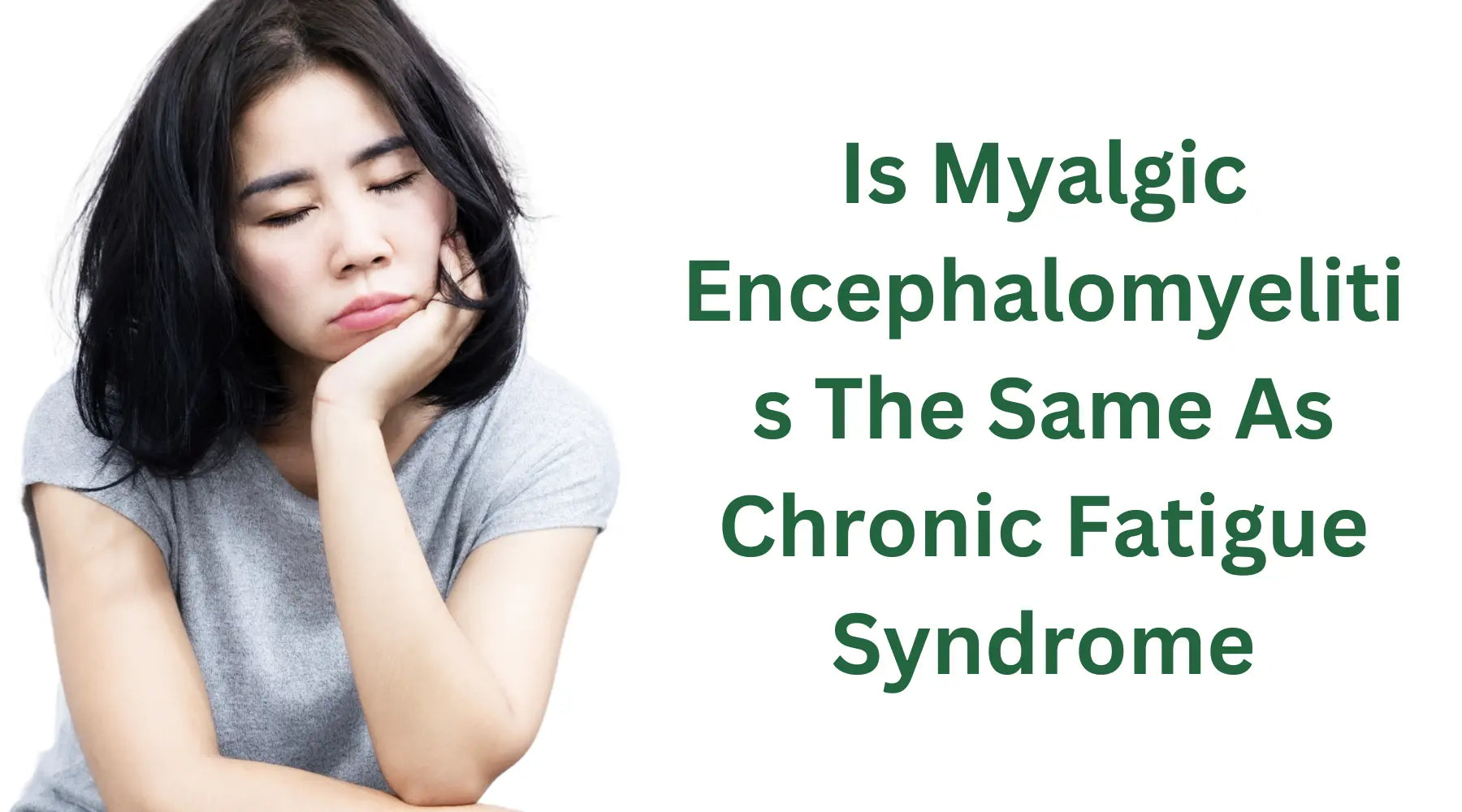 There is uncertainty over whether Myalgic Encephalomyelitis (ME) and Chronic Fatigue Syndrome (CFS) are the same because they are frequently used interchangeably. In this blog article, we'll examine the connection between ME and CFS and discuss Shilajit's potential involvement in their treatment.
There is uncertainty over whether Myalgic Encephalomyelitis (ME) and Chronic Fatigue Syndrome (CFS) are the same because they are frequently used interchangeably. In this blog article, we'll examine the connection between ME and CFS and discuss Shilajit's potential involvement in their treatment.
Are chronic fatigue syndrome (CFS) and myalgic encephalomyelitis (ME) the Same?
Because of their strong ties, ME and CFS have many symptoms in common. However, the language and diagnostic standards have changed over time, which has caused variations in how they are viewed:
Originally known as myalgic encephalomyelitis (ME), this illness is marked by muscle pain, neurological symptoms, and cognitive decline. Because it places more emphasis on the neurological features of the disorder, some medical experts and patients prefer this word.
When a patient has persistent, unexplained fatigue for at least six months, chronic fatigue syndrome (CFS), a more commonly known name, is frequently used as a diagnosis. However, some contend that the complexity and severity of the syndrome need to be better captured by CFS.
To recognize the overlap between the two conditions and to cover a broader range of symptoms, there has been a tendency to use the label "ME/CFS" in recent years.
ME/CFS Treatment Options
There is no one-size-fits-all method for treating ME/CFS; hence, treating it can be challenging.
Typical management tasks include:
Relief of Specific Symptoms: Medicines may be recommended to treat particular symptoms, such as pain, insomnia, and depression.
Lifestyle Management: Patients are frequently instructed to pace themselves and carefully regulate their energy levels to avoid exacerbating their symptoms.
Symptom management and a progressive increase in physical activity are the goals of cognitive behavioral therapy (CBT) and graded exercise therapy (GET).
Nutritional and dietary support: Some patients benefit from dietary adjustments and supplementation.
Examining Shilajit in the Management of ME/CFS
Shilajit is a naturally occurring chemical that has been studied for its potential health advantages. Despite the lack of studies on Shilajit's involvement in ME/CFS, it has several qualities that might be important:
Shilajit is thought to boost vigour and energy, which can be helpful for ME/CFS patients who frequently suffer from incapacitating exhaustion.
Effects on Inflammation: Shilajit has anti-inflammatory characteristics that may help reduce some of the symptoms of ME/CFS.
Shilajit has adaptogenic properties, which may assist the body in dealing with stress and enhance general well-being.
Conclusion
While ME and CFS have different terminology, they are very similar regarding the symptoms and difficulties people experience. Personal preferences and geographical usage frequently influence the choice of ME or CFS.
A multimodal strategy, including symptom alleviation, lifestyle management, counselling, and even dietary and nutritional support, may be needed to manage ME/CFS because it is a complicated condition. Shilajit may complement an all-encompassing ME/CFS therapy strategy because of its potential advantages in energy augmentation, inflammation reduction, and stress control.
Shilajit should be viewed as a potential supportive component rather than a panacea or stand-alone treatment for ME/CFS, though this is key. Patients with ME/CFS should work closely with medical specialists to create a specialized treatment regimen catered to their unique requirements and circumstances.
In conclusion, a holistic management strategy considering complementary approaches like Shilajit and the complexity of ME/CFS can provide hope and support for people with these challenging conditions.